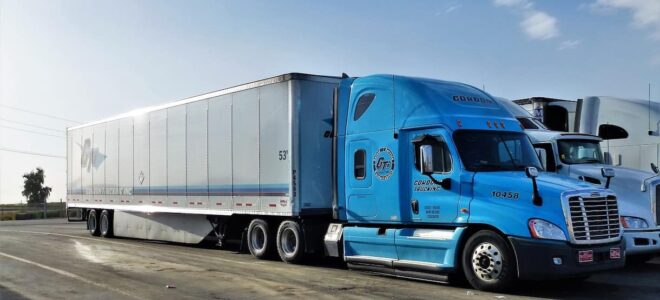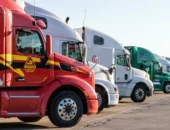The global economy is intricately connected through a complex network of supply chains and international trade. At the heart of this intricate web lies the world of trucking, a vital industry that plays a pivotal role in transporting goods across borders. However, it is not without its complexities. It involves navigating a myriad of regulations, customs procedures, and logistical challenges. Here, we delve into the multifaceted world of trucks, shedding light on its various aspects and exploring the key challenges it faces. From global supply chains to technology and innovation, we will uncover the critical factors that shape this industry and ensure the smooth flow of goods across nations.
Global Supply Chain and Trade
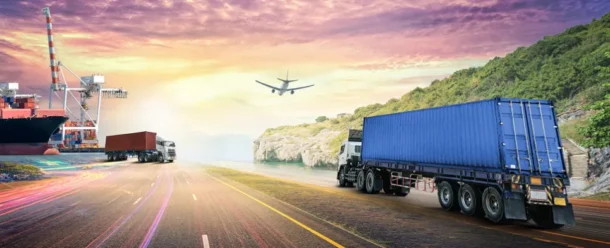
Source: globaltrademag.com
International trucking is an integral part of the global supply chain, facilitating the movement of goods between countries. In today’s interconnected world, the demand for trade is skyrocketing, driving the need for efficient and reliable transportation systems. The transportation of goods by road offers flexibility and accessibility, making it a popular choice for businesses engaged in cross-border trade.
Chicago trucking company and others serve as the backbone of this system, connecting manufacturers, distributors, and retailers across the globe. By seamlessly transporting goods from production facilities to distribution centers, international trucking contributes to the smooth functioning of the global supply chain.
Regulations and Legal Considerations
The world of trucks involves navigating a complex landscape of regulations and legal considerations. Each country has its own set of rules governing cross-border transportation, including weight restrictions, driver qualifications, and safety standards. Harmonizing these regulations poses a significant challenge for trucking companies, as they must comply with diverse legal frameworks to ensure seamless cross-border operations.
Customs regulations play a crucial role in international trucking. Import and export procedures, duties, and tariffs need to be meticulously adhered to, requiring trucking companies to stay abreast of ever-changing customs regulations and documentation requirements.
Cross-Border Customs and Documentation
When goods are transported across borders, customs procedures and documentation become paramount. International trucking companies must navigate a labyrinth of paperwork, ensuring compliance with customs regulations and securing the necessary permits and licenses. Accurate and complete documentation is essential to avoid delays and ensure the smooth transit of goods.
Customs brokers play a crucial role in facilitating this process, acting as intermediaries between trucking companies and customs authorities. By leveraging their expertise, customs brokers assist in completing the required paperwork and navigating the intricacies of cross-border customs procedures, expediting the movement of goods.
Different Types of Trucking Services
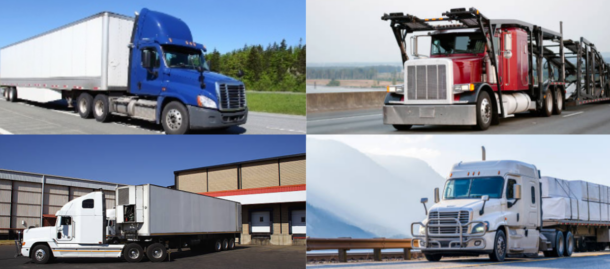
Source: truckbook.com
International trucking encompasses various types of services tailored to meet diverse transportation needs. One of the most common services is full truckload (FTL) shipping, where a truck is dedicated to carrying a single shipment. FTL shipping offers faster transit times and reduces the risk of damage or loss since the shipment remains in the same truck throughout the journey.
Less-than-truckload (LTL) shipping involves consolidating multiple shipments from different shippers into a single truck. LTL shipping is cost-effective for smaller shipments but may have longer transit times due to multiple stops along the route. Other specialized international trucking services include temperature-controlled transportation for perishable goods, oversized or heavy cargo transportation, and expedited or time-sensitive deliveries.
Key Challenges
Despite its significance in global trade, trucking faces several challenges that require innovative solutions. One of the major challenges is the fragmented nature of regulations across different countries. Inconsistent regulations can lead to delays, increased costs, and operational inefficiencies. Another challenge lies in managing the complexity of cross-border operations, including language barriers, cultural differences, and unfamiliarity with local customs procedures.
Geopolitical factors, such as political instability or trade disputes, can disrupt international trucking routes and impact the flow of goods. These challenges necessitate collaboration among stakeholders, including governments, trucking companies, and industry associations, to establish unified regulations and address operational hurdles.
Infrastructure and Road Networks
Efficient international trucking relies heavily on well-developed infrastructure and reliable road networks. However, varying levels of infrastructure development exist across different countries, posing challenges to cross-border transportation. In some regions, inadequate road conditions, insufficient border facilities, and congestion can impede the smooth flow of goods.
Infrastructure investments, such as the development of modern highways, bridges, and border crossings, are crucial to enhancing international tracking capabilities. Furthermore, improving connectivity between countries through initiatives like trade corridors and transport agreements can streamline operations and foster economic growth.
Freight Forwarding and Logistics
The complexities of international trucking have led to the rise of freight forwarding and logistics services. Freight forwarders act as intermediaries, coordinating the transportation of goods on behalf of shippers. They navigate the complexities of international trade, managing customs documentation, and organizing transportation logistics.
By leveraging their expertise and extensive network of carriers, freight forwarders optimize shipping routes, consolidate shipments, and ensure timely delivery. Their role extends beyond transportation, encompassing warehousing, inventory management, and supply chain consulting, providing end-to-end solutions for businesses engaged in trade.
Technology and Innovation
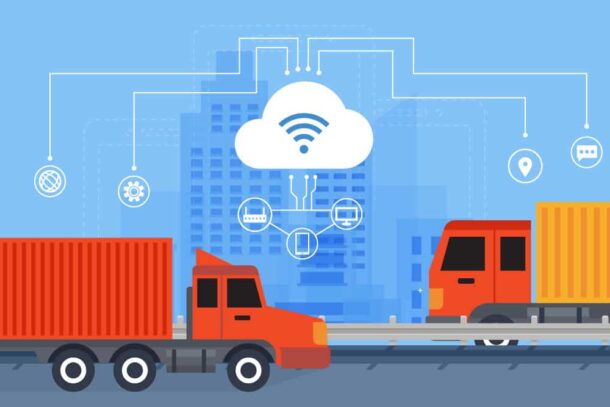
Source: transmetrics.ai
In recent years, technology has emerged as a game-changer in the international trucking industry. From route optimization and tracking systems to blockchain-based documentation and electronic customs clearance, technology has revolutionized operations and enhanced efficiency. Real-time tracking enables stakeholders to monitor shipments, anticipate delays, and respond proactively to unforeseen events.
Automation and artificial intelligence (AI) are transforming various aspects of international trucking, including driverless trucks and predictive analytics for demand forecasting. These technological advancements streamline processes, reduce costs, and improve overall performance, making international trucking faster, safer, and more reliable.
Final Words
International trucking is a complex and ever-evolving industry that plays a crucial role in connecting businesses and consumers worldwide. Navigating the intricacies of regulations, customs procedures, and logistical challenges requires a deep understanding of the global supply chain and a commitment to innovation.
By recognizing and addressing the key challenges faced by international trucking, stakeholders can foster collaboration, invest in infrastructure, and leverage technology to create a more efficient and seamless global transportation network. As international trade continues to flourish, the complexities of international trucking will persist, making it imperative for industry players to stay informed, adaptable, and prepared for the future.

